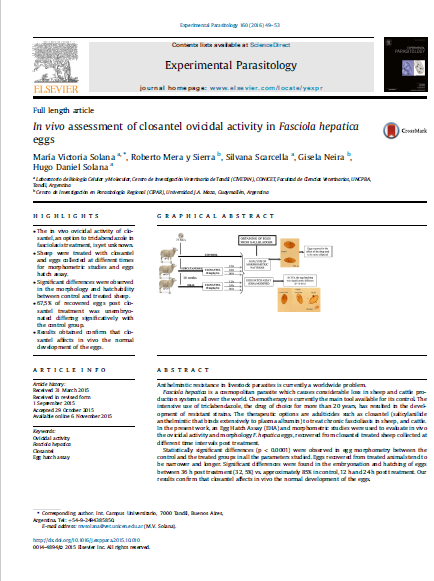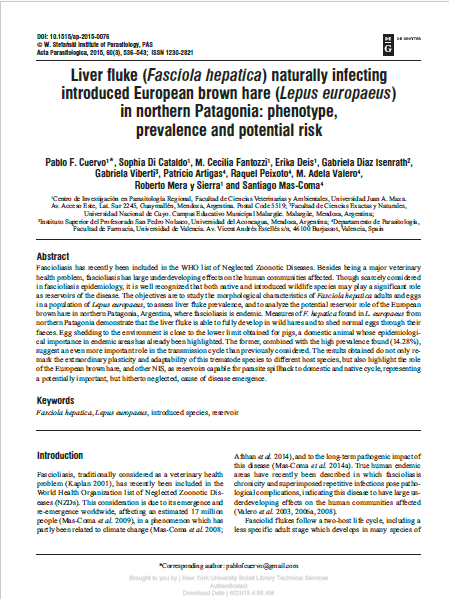Browsing Ciencias veterinarias by Subject "Fasciola hepatica"
Now showing items 1-2 of 2
-
In vivo assessment of closantel ovicidal activity in Fasciola hepatica eggs.
(Editorial Experimental Parasitology, 2016)Anthelmintic resistance in livestock parasites is currently a worldwide problem. Fasciola hepatica is a cosmopolitan parasite which causes considerable loss in sheep and cattle production systems all over the world. Chemotherapy is currently the main tool available for its control. The intensive use of triclabendazole, the drug of choice for more than 20 years, has resulted in the development of resistant strains. The therapeutic options are adulticides such as closantel (salicylanilide anthelmintic that binds extensively to plasma albumin) to treat chronic fascioliasis in sheep, and cattle. In ... -
Liver fluke (Fasciola hepatica) naturally infecting introduced European brown hare (Lepus europaeus) in northern Patagonia: phenotype, prevalence and potential risk
(Comité editorial Acta Parasitologica, 2015-06-23)Fascioliasis has recently been included in the WHO list of Neglected Zoonotic Diseases. Besides being a major veterinary health problem, fascioliasis has large underdeveloping effects on the human communities affected. Though scarcely considered in fascioliasis epidemiology, it is well recognized that both native and introduced wildlife species may play a significant role as reservoirs of the disease. The objectives are to study the morphological characteristics of Fasciola hepatica adults and eggs in a population of Lepus europaeus, to assess liver fluke prevalence, and to analyze the potential ...











